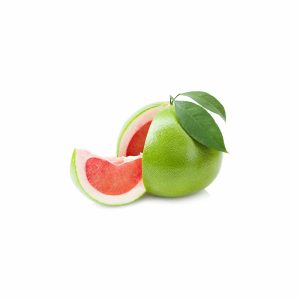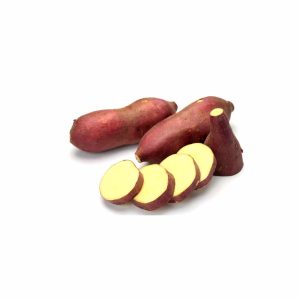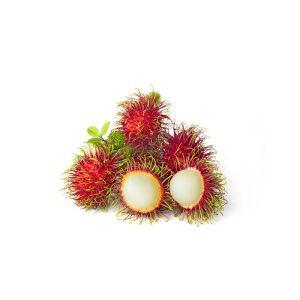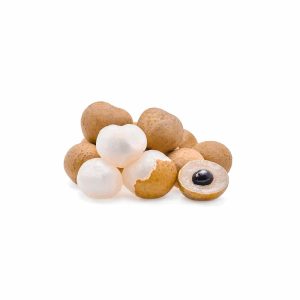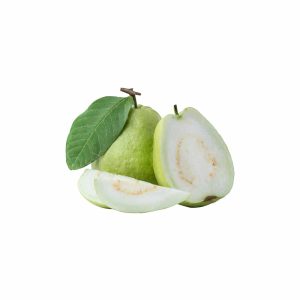Durian, scientifically known as Durio, is a tropical fruit native to Southeast Asia. Revered as the “king of fruits,” it is renowned for its distinctive characteristics, both in terms of appearance and flavor. The durian tree, belonging to the Malvaceae family, bears large, spiky fruits that can grow to substantial sizes, with some weighing several kilograms. The outer husk is covered in thorn-like spikes, giving it a formidable appearance that contrasts with the treasures hidden inside.
While durian is available in various forms, including frozen and processed, the focus here is on the appreciation and benefits of consuming it fresh. Fresh durian is distinguished by its vibrant, custard-like flesh, encapsulating a rich blend of flavors and nutrients.
Unlike processed varieties, fresh durian offers a more authentic experience, allowing enthusiasts to indulge in its unique qualities – from the tantalizing aroma to the complex interplay of sweet and savory notes in its taste profile.
I. Nutritional Benefits of Fresh Durian
A. Rich in Vitamins and Minerals
1. High Levels of Vitamin C
Fresh durian is a nutritional powerhouse, particularly in its remarkable vitamin C content. Vitamin C, also known as ascorbic acid, is a potent antioxidant that plays a pivotal role in supporting the immune system. It aids in the synthesis of collagen, a protein essential for skin health, wound healing, and the overall structure of connective tissues. The abundance of vitamin C in fresh durian not only contributes to immune defense but also provides anti-aging benefits and helps the body absorb iron efficiently.
2. Potassium, Fiber, and Other Essential Nutrients
In addition to its vitamin C content, fresh durian boasts a rich array of essential nutrients. Potassium, a vital mineral, is abundant in durian and contributes to various physiological functions. It helps regulate fluid balance, promoting healthy blood pressure levels and supporting proper muscle and nerve function. The dietary fiber content in durian aids in digestion, promoting bowel regularity, and can contribute to weight management by inducing a feeling of fullness. Beyond these, fresh durian contains a spectrum of essential nutrients like manganese, copper, and folate, each playing a unique role in maintaining overall health.
B. Provides Energy and Supports Overall Health
1. Healthy Fats for Sustained Energy
Unlike most fruits, fresh durian contains healthy fats, primarily monounsaturated and polyunsaturated fats. These fats serve as a concentrated source of energy, contributing to sustained vitality. The combination of healthy fats and carbohydrates in durian ensures a gradual release of energy, making it an excellent choice for those looking for enduring fuel for their daily activities.
2. Promotes Cardiovascular Health
The healthy fat profile in fresh durian, coupled with its potassium content, contributes to cardiovascular well-being. Monounsaturated and polyunsaturated fats have been associated with a lower risk of cardiovascular diseases by reducing levels of LDL (low-density lipoprotein) cholesterol. Additionally, the potassium in durian helps regulate blood pressure, further supporting heart health. Consuming fresh durian as part of a balanced diet can contribute to a healthier cardiovascular system.
II. Unique Flavor and Aroma
A. Distinctive Taste Profile
1. Sweet and Savory Combination
The flavor profile of fresh durian is truly unique, characterized by a captivating blend of sweetness and savory notes. The sweetness is often described as rich and custard-like, reminiscent of a mix of sweetened condensed milk and various tropical fruits. Simultaneously, there is an underlying savory element that adds complexity to the taste, creating a harmonious balance that distinguishes durian from other fruits. This distinctive combination of sweet and savory makes fresh durian a culinary experience unlike any other.
2. Creamy Texture
Complementing its intriguing taste, fresh durian boasts a creamy texture that further enhances its appeal. The flesh is soft and buttery, with a consistency often compared to custard or smooth pudding. This velvety texture contributes to the overall indulgence of consuming fresh durian, creating a sensory experience that is not only flavorful but also luxuriously smooth.
B. Aromatic Qualities
1. Strong Scent that Varies Among Durian Varieties
Perhaps the most infamous aspect of fresh durian is its powerful and distinctive aroma. The scent is strong, pungent, and has been described in various ways, from a combination of rotten onions and turpentine to hints of tropical sweetness. Importantly, the aroma can vary among different durian varieties, each having its unique olfactory signature. While some may find the scent overpowering, it is a key factor in identifying and appreciating the diversity within the world of durian.
2. Considered a Delicacy for Its Unique Aroma
Despite its polarizing nature, the aromatic qualities of fresh durian are celebrated in many cultures, turning it into a sought-after delicacy. In Southeast Asia, where durian is particularly cherished, its distinct aroma is often associated with cultural identity and regional pride. The appreciation of durian’s unique scent has transcended mere gustatory enjoyment, becoming a symbol of culinary sophistication and an acquired taste for those who relish its one-of-a-kind olfactory experience.
III. Health Benefits
A. Potential Antioxidant Properties
1. Antioxidants May Help Protect Cells from Damage
Fresh durian is a rich source of antioxidants, including vitamins like vitamin C and other compounds such as flavonoids and carotenoids. Antioxidants play a crucial role in neutralizing free radicals in the body, which are unstable molecules that can cause cellular damage. By scavenging these free radicals, antioxidants in durian may help protect cells from oxidative stress, potentially reducing the risk of chronic diseases and supporting overall health.
2. Some Studies Suggest Anti-Inflammatory Effects
Preliminary research indicates that the antioxidants found in durian may possess anti-inflammatory properties. Chronic inflammation is linked to various health conditions, including cardiovascular disease, arthritis, and certain cancers. While more studies are needed to fully understand the extent of durian’s anti-inflammatory effects, the presence of antioxidants suggests a potential role in mitigating inflammation and promoting a healthier inflammatory balance in the body.
B. May Aid Digestion
1. Rich in Fiber for Digestive Health
Fresh durian is a notable source of dietary fiber, a key component for digestive health. The fiber content in durian promotes regular bowel movements, prevents constipation, and contributes to the overall health of the digestive system. Adequate fiber intake is also associated with a reduced risk of digestive disorders, including diverticulitis and colorectal cancer.
2. Contains Enzymes that May Assist in Digestion
Durian contains natural enzymes, such as amylases and proteases, which can aid in the breakdown of carbohydrates and proteins during digestion. These enzymes may enhance the digestive process, making it more efficient and potentially reducing the likelihood of digestive discomfort. While individual responses to these enzymes may vary, some individuals find that the digestive enzymes in durian contribute to a smoother digestive experience.






